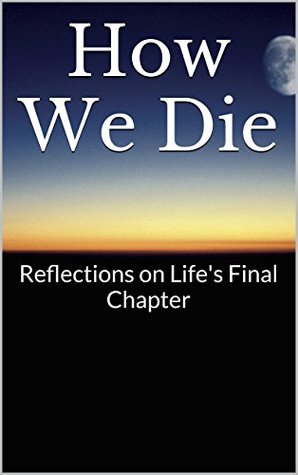More on this book
Community
Kindle Notes & Highlights
Read between
August 9 - August 20, 2020
If one were to name the universal factor in all death, whether cellular or planetary, it would certainly be loss of oxygen.
There is no way to deter old age from its grim duty, but a life of accomplishment makes up in quality for what it cannot add in quantity.
The fact that there is a limited right time to do the rewarding things in our lives is what creates the urgency to do them. Otherwise, we might stagnate in procrastination.
In the anticipation that the great majority of people die peacefully in any event, treatment decisions are sometimes made near the end of life that propel a dying person willy-nilly into a series of worsening miseries from which there is no extrication—surgery of questionable benefit and high complication rate, chemotherapy with severe side effects and uncertain response, and prolonged periods of intensive care beyond the point of futility. Better to know what dying is like, and better to make choices that are most likely to avert the worst of it. What cannot be averted can usually at least be
...more
Rarely are there last words in intensive care units—whatever consolation is to be found must come from the warm embrace of a nurse, or the solace of a doctor’s words.
The boundaries of medical futility, however, have never been clear, and it may be too much to expect that they ever will be. It is perhaps for this reason that there has arisen the conviction among doctors—more than a mere conviction, it is nowadays felt by many to be a responsibility—that should error occur in the treatment of a patient, it must always be on the side of doing more rather than less. Doing more is likely to serve the doctor’s needs rather than the patient’s. The very success of his esoteric therapeutics too often leads the physician to believe he can do what is beyond his doing
...more
Almost everyone seems to want to take a chance with the slim statistics that oncologists give to patients with advanced disease. Usually, they suffer for it, they lay waste their last months for it, and they die anyway, having magnified the burdens they and those who love them must carry to the final moments. Though everyone may yearn for a tranquil death, the basic instinct to stay alive is a far more powerful force.
Although it is not always admitted, the hospital has offered families a place where they can hide the unseemly invalid whom neither the world nor they can endure. … The hospital has become the place of solitary death.
what actually happens is that patients too frequently enter a hospice or other palliative care program only when they are in the last weeks or even days of life—too late to benefit from the full extent of merciful attention that is required to lessen unbearable symptoms.
When the time comes, personal, spiritual, and emotional leave-taking need surroundings of serenity, which are not to be found in the highly charged atmosphere of a bustling modern hospital. They also need a decision by all concerned that further efforts at rescue should not be attempted. This may require forceful determination on the part of patient and family; a careful and informed use of advance directives; referral to the expert care of a hospice unit; the services of physicians and nurses skilled in palliative care; the intercession of an advocate; or the presence of a humane and empathic
...more


